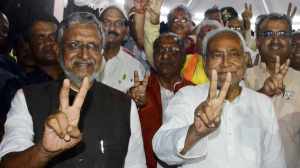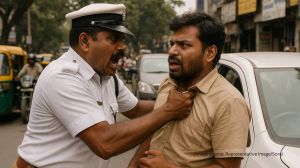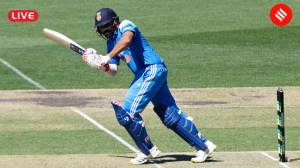The Supreme Court Thursday asked petitioners who sought a probe into the April 22 Pahalgam terror attack by a former top court judge not to make any prayer that can demoralise the forces, and underlined that the job of a judge is not to investigate but decide disputes.
The remarks came as the two-judge bench took up for hearing a Public Interest Litigation (PIL) which, among other things, also sought the constitution of a judicial commission headed by a retired SC judge to investigate the Pahalgam terror attack killings.

“This is not the time. This is the crucial hour when each and every citizen of this country has joined hands to fight terrorism. Don’t make any prayer which can demoralise our forces. This is not acceptable to us,” said Justice Surya Kant while presiding over the bench also comprising Justice N K Singh.
Story continues below this ad
At the very outset, Justice Kant asked the counsel, “Be responsible before filing such a PIL. You have some duty towards the country also. The way you try, you are trying to demoralise the forces in this hour of crisis and juncture?” The counsel replied, “We are very much satisfied with what the government is doing, but had only one submission”.
“Please don’t bring these things into (public) domain. Since when have retired High Court and Supreme Court judges become experts in investigation?” Justice Kant asked. After that, the counsel said, “We are taking those prayers back.”
However, Justice Kant said, “You have already filed it, you have already brought into the public domain what you are asking before us. Tell us, since when have we acquired this expertise in investigation? We only decide disputes. You are asking that a former judge of the SC should be appointed to investigate. Please don’t ask these kinds of things”.
Reiterating that the petitioners are taking back their plea, the counsel said they should be allowed to raise one prayer in the interest of students who are studying outside Jammu and Kashmir. “We will not mention anything. Please go wherever you want to go, better if you withdraw it. That’s the only advice. Don’t ask us to pass an order,” said Justice Kant.
Story continues below this ad
The counsel urged the court to appoint an amicus curiae, but the court said, “Why should we appoint an amicus?” The counsel said, “(for) some safeguards for the students who are studying outside Jammu and Kashmir.”
However, Justice Kant asked, “Are you sure about what prayer you have made? Please see what prayer you are asking for. We don’t want to read out here in the open. First, you are asking a retired Supreme Court justice to investigate so and so. The Supreme Court judges can’t investigate. They can only decide disputes. Then, direct the respondent to take an action plan for so and so, issue guidelines for minimum so and so, award interim compensation so and so, direct the union government to constitute so and so, direct the Press Council of India to do so.”
Making evident the court’s displeasure, Justice Kant said, “You force us to read all these things…and then you forget what is the prayer you are making… Look at your prayers. This is not the time. Look at the sensitivity of the issue.”
Justice Singh suggested that the petitioners can approach the High Court. Solicitor General Tushar Mehta said, “Let it not go to the High Court also.”
Story continues below this ad
The bench, however, permitted the petitioners to withdraw their plea, and granted them liberty to approach the High Court only on the issue “with respect to the cause of the students.”









